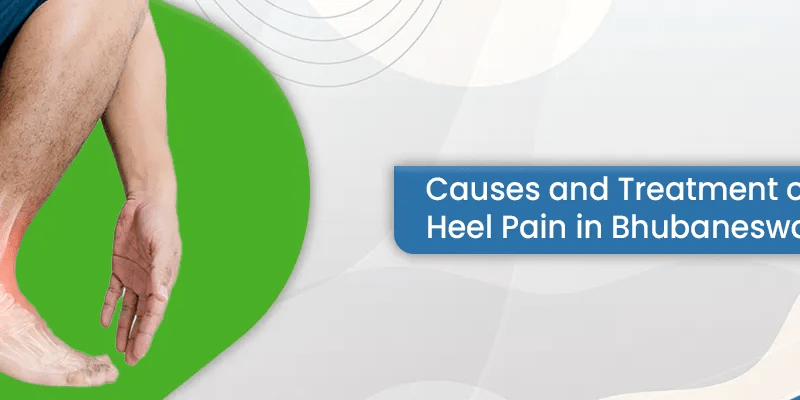There are a range of conditions that can cause heel pain. They can be challenging to spot because heel pain isn’t usually triggered by an accident like a fall or a twist. Read on to view the details.
You may experience heel pain if you overuse or injure your heel. If you give your aching heel ample rest, it will generally heal without surgery.
On the other hand, many people try to ignore the early signs of heel pain and continue to engage in the activities that caused it.
If you keep using a hurting heel, it will only worsen and turn into a chronic condition, causing more problems. If the heel pain persists, you should visit one of the best orthopedic doctor in Bhubaneswar to diagnose the problem.
Now, let’s know the other reasons,
When should you consult an ortho doctor in Bhubaneswar?
Heel pain can range from mild to severe, and consulting one of the best orthopedist in Bhubaneswar can help determine its severity. The following are some symptoms that require medical assistance:
- Difficulty in walking comfortably with the affected heel
- Swelling or discoloration of the heel
- Pain, stiffness, or numbness in the heel with fever
- Persistent heel pain
- Heel pain that occurs after resting
- Difficulty in bending the foot
What causes heel pain?
There is a range of conditions that can cause heel pain. They can be challenging to spot because heel pain isn’t usually triggered by an accident like a fall or a twist. It’s more likely to happen due to repetitive pressure and the hammering action of the heel.
Heel pain can be caused by a variety of causes, including:
- Obesity
- Neuroma
- Bursitis
- Plantar fasciitis
- Improper movements, such as inward rolling of the feet
- Wearing shoes that don’t fit properly
- Walking, jumping, or hopping on hard floors
- Heel injury such as stress fractures
- Some conditions, such as diabetes and arthritis
Now, let’s know,
What are the signs and symptoms of heel pain?
The symptoms of heel pain vary based on the source. The patient may also have the following symptoms in addition to pain:
- Swelling
- Bruising
- Stiffness
- Inflammation
- Tenderness
- Bony growth within the heel
- Standing from a sitting or relaxing position causes heel pain
How is heel pain diagnosed?
Several tests are used to determine the cause of heel pain, depending on the condition:
- Medical history
- Physical examination, including checking foot and leg joints and muscles
- X-ray
How is heel pain treated?
Nonsurgical treatments improve most conditions that cause heel pain over time. The goal of treatment is to reduce discomfort and swelling, improve foot mobility, and reduce tension and pressure on the heel. The orthopedist can administer the following treatments:
1 . Injections:
Steroid injections can help to reduce pain and swelling. Steroid injections should only be used if a tendon problem is severe. However, they may assist with plantar fasciitis and bursitis.
2. Orthotic devices:
Over-the-counter or custom-made shoe (orthotics) help relieve heel pressure. Some patients find that wearing a splint at night helps them sleep better, especially if they have morning pain.
More severe symptoms may need the use of a walking boot. For everyday wear and exercise, the patient may also need to switch to more supportive shoes.
3. Pain relievers:
Nonsteroidal anti-inflammatory medications and ice packs alleviate pain and swelling.
4. Physical therapy:
Soft tissue adhesions can be broken up by massage, physical therapy, and ultrasound therapy. These therapies may help to lessen inflammation and pain.
5. Stretching exercises:
For tight tendons and muscles, the orthopedist can show the patient how to execute heel stretching exercises.
6. Taping:
Athletic or medical tape can be used to support the foot arch or heel. The majority of reasons for heel pain do not require surgery.
If you suffer from chronic heel pain, don’t wait; visit one of the best orthopedic clinic in Bhubaneswar to seek the most effective treatment.

